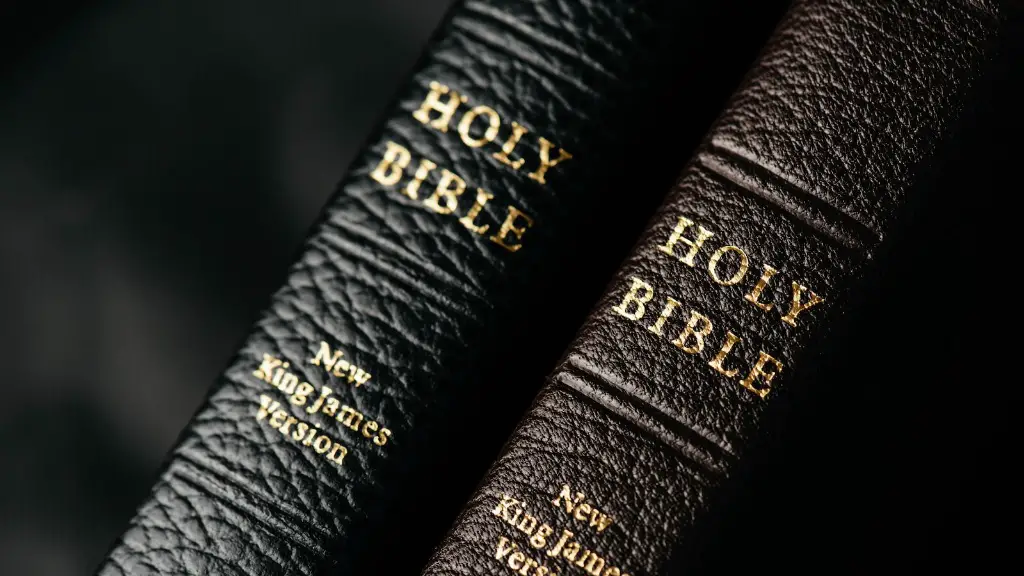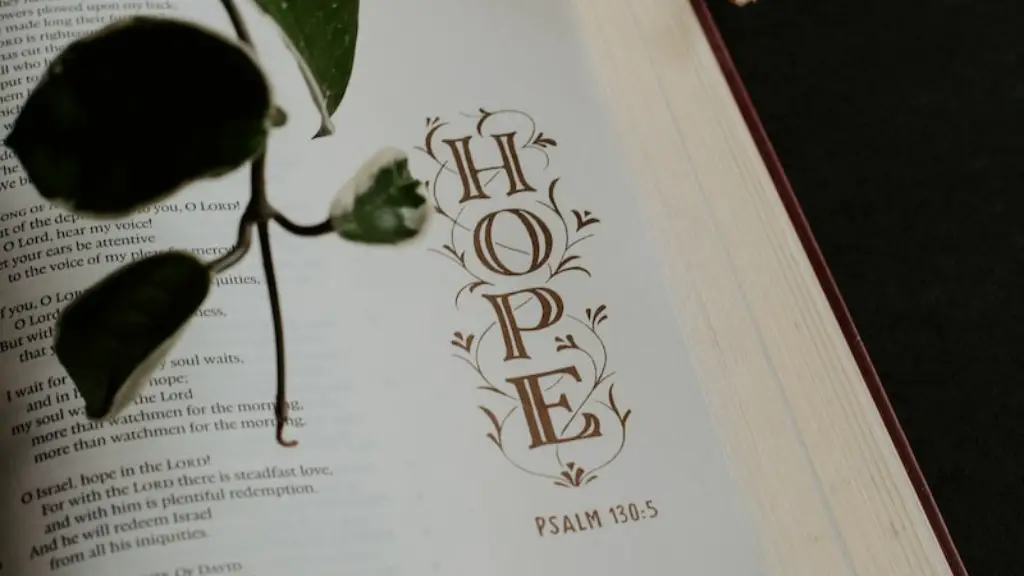The topic of where Paradise is in the Bible has many interpretations, from references to ancient Jewish teachings to other belief systems. For some, it is an allegory, while others see it as a physical place. Paradise is mentioned in the Bible in both the Old Testament and the New Testament, and while no single location is pointed to, the Scriptures provide some clues as to what it is and where it might be located.
In the Old Testament, Paradise is mentioned in the Book of Ezekiel, in which paradise is called “the garden of Eden”. In this section of the Bible, the garden of Eden is described as a place where the waters of four rivers divided, and was said to contain the tree of life and the tree of knowledge. It was also described as a place of great beauty and abundance, with every kind of fruit.
In the New Testament, The Bible’s depiction of Paradise is somewhat different. In the Gospels, Jesus speaks about Heaven, a place of eternal life in the presence of God; a place that is free from sorrow and suffering. Many people interpret this to be a reference to Paradise, although the exact location is never specified.
However, the term “paradise” is used in a number of other contexts in the Bible. In some cases, it is a metaphor for the spiritual world, a place of harmony and joy that can be experienced on earth. In other cases, it is used as a symbol of the heavenly reward awaiting those who are faithful to God.
The exact location of Paradise is perhaps not as important as its spiritual meaning. To many, Paradise is a symbol of hope and joy, a place of ultimate security and peace. It is a place of spiritual refuge and contentment, a place of joy and rest. It is a place of perfect love, and those who seek it find solace in its embrace.
No matter what interpretation one puts on Paradise in the Bible, it clearly remains a powerful symbol of faith and hope. It is a place that provokes thoughts of joy and longing, as well as a reminder of the incredible beauty of creation and the divine plan.
Paradise And The Afterlife
The idea of Paradise has had an enduring presence in many different cultures and belief systems throughout history, and it is an important theme in the Bible. According to Christian traditions, Paradise is a spiritual realm, the home of God and His angels, a place of perfect peace and joy where the faithful go when they die.
For Christians, Paradise is a place of reunion with loved ones and a place where one can go to be at peace and to find rest from the worries and cares of life. Those who have gone to Paradise are believed to have entered into eternal life, experiencing the perfect peace and joy that comes from being in the presence of God.
Many Christians also believe that those who follow the teachings of Jesus on earth will be rewarded in Paradise for their faith and service. This is seen as a source of hope, offering a sense of comfort and assurance to believers.
While the concept of Paradise is embraced by many different religions and cultures, there is no one definitive explanation of what it is or where it is located. For many, it is simply a symbolic representation of the afterlife, a place of perfect peace and joy that awaits those who are faithful to God.
Paradise In Judaism
In Judaism, Paradise is the destination of the righteous after death. According to Jewish tradition, the righteous dead go to the Garden of Eden, which is described as a place of eternal peace, joy and abundance.
In Judaism, Paradise is sometimes referred to as the “World to Come”, a place where one can experience perfect peace and joy and find rest from the struggles and sorrows of life. It is also described as a place where one can commune directly with God.
One of the most well-known Jewish interpretations of Paradise is found in the Talmud, a collection of Jewish writings that dates from the first century CE. In this text, Paradise is described as a place of beauty and abundance, with trees, rivers and all kinds of fruit.
Paradise is also mentioned in the book of Isaiah. In this book, Paradise is depicted as a place of perfect peace, joy and abundance. In Isaiah 65:21-25, God is described as creating a “new heaven and a new earth”, and in this new world, the righteous will find peace, joy and abundance.
Paradise In Islam
In Islam, Paradise is sometimes referred to as Jannah, a place of physical and spiritual pleasure. According to the teachings of Islam, Jannah is a place of ultimate bliss and felicity, with eternal gardens and rivers of crystal-clear water.
In the Qur’an, Paradise is described as the reward given to those who are faithful to Allah. It is also described as a place of physical and spiritual pleasure, with rivers of milk, honey, wine and other foods that never spoil.
In the Hadith (the sayings of the Prophet Muhammed), Paradise is sometimes described as a place of reunion with loved ones, where the faithful reunite with their relatives who have passed away. According to the teachings of Islam, those who follow the true path will be rewarded in Paradise with eternal joy and peace.
In Islam, Paradise is a source of great hope for those who are faithful to Allah. It represents a place of rest and peace, where one can finally find comfort from the tribulations of life. It is believed to be the ultimate reward for those who are righteous and true.
Paradise In Hinduism
In Hinduism, Paradise is referred to as the world of Swarga, which is described as a place of extraordinary beauty and abundance. It is considered to be the realm of the gods, where they dwell in perfect union with their divine consorts.
The concept of Swarga is based on the Hindu belief in reincarnation, or cyclical rebirth. According to this belief, after one dies, they are reborn, and the destination of the soul depends on how one lived their life. Perfectly virtuous souls are believed to go to Swarga, where they experience eternal bliss and joy.
In Hinduism, Paradise is seen as a reward for those who live a life of goodness, faith and devotion. It is seen as a place of eternal joy, freedom from suffering and worry, and reunion with loved ones.
In Hinduism, Paradise is seen as something to strive for. It is a source of motivation, as it represents the ultimate reward for those who seek the divine path of truth and righteousness. It is a place of perfect peace, joy and eternal bliss.
Paradise In Buddhism
In Buddhism, the concept of Paradise is somewhat different. It is not seen as a tangible place, but rather as a state of mind. Buddhism teaches that through meditation, mindfulness and living a life of virtue and kindness, one can achieve a state of perfect peace and joy.
In Buddhism, Paradise is seen as a spiritual refuge and contentment, a place of perfect love, tranquility and inner harmony. It is believed that those who practice the true teachings of the Buddha can find solace and comfort in its embrace.
Paradise is an important concept in Buddhism, as it provides a source of hope for those seeking the inner peace and joy that comes from living a life of goodness and virtue. It is seen as a place of perfect peace where one can free themselves from suffering and worry.
No matter what interpretation one puts on Paradise, it remains a powerful symbol of faith and hope. It is a source of solace and comfort for all who seek it, offering a reminder of the incredible beauty of Creation and the divine plan.





